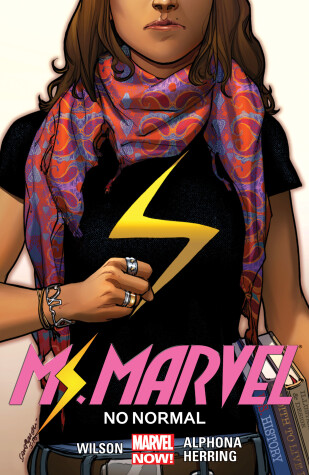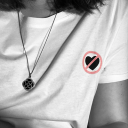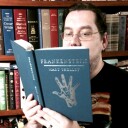
nannah
Written on Sep 3, 2020
Book content warnings:
racism
Representation:
The main protagonist is a south Asian Muslim woman
Her best friend is also a Muslim woman
Kamala Khan is an “ordinary girl” from Jersey, until she suddenly gets superpowers. Now the new Ms. Marvel, she has to deal with who she is as a person (and her conservative family) as she struggles with a new enemy.
If it sounds a bit vague, the story kind of is, too. How does she get superpowers? There’s a mist that gathers around the edge of a party. I don’t know why, there just is, and it’s not ever explained. Kamala hallucinates, asks for powers, and BAM! she’s got them! And then this enemy she makes, the Inventor? I know this is just the first volume, but I don’t feel any which way about him. We see his lackeys, who are just basically cringy one-liners of characters -- and we’re supposed to be … intimidated by them? They’re really just hipsters with spidery robots they call kitties. Maybe I feel this way because I don’t read comics often.
I think what let me down the most in Ms. Marvel though is Kamala herself … I didn’t want this whiney character who defends a white girl talking about hijabs as “Culture is sooooo interesting!” by saying, “But she’s so nice!”. I wanted her friend, Nakia, to be the heroine -- who basically personifies the strength of who we see on the comic’s cover.
Before reading, I remember seeing blog reviews about how this novel breaks Muslim stereotypes, with Kamala not wearing a burqa even though she’s Muslim, about how the authors wanted to write about a girl fitting in, instead of making the story all about a Muslim girl, etc. But I’ve seen conflicting reviews from Muslim readers: Kamala and her family are in fact stereotypes (see the overbearing conservative parents), and the fact that Kamala wants to fit in so badly with her white peers doesn’t speak to this generation, who have never wanted to be anything else but Muslim -- and speaks rather to the generation who have lived through 9/11 and faced its struggles → aka, the authors’ generation, instead.
I’m white, and not Muslim, so I can’t speak about that particular issue. I’m just stating both sides. However, I’m not really one for making a marginalized character … “palatable” to a widespread audience by being “just like everyone else”. Or trying to be just like everyone else (as stated in the headline of this Atlantic article). However, I’m very glad Kamala gets over the hatred she seems to have for her own race and religion (though unfortunately that character development happens in about just one page).
This comic does have the potential to become something really fun -- even if the dialogue had me cringing. The relationships between Kamala and her friends, and Kamala and her brother, have a lot of great potential as well. I hope they get the page time to be explored. Overall I’m a little disappointed at how unclear some things are, but again that just might be my inexperience with comics talking.




